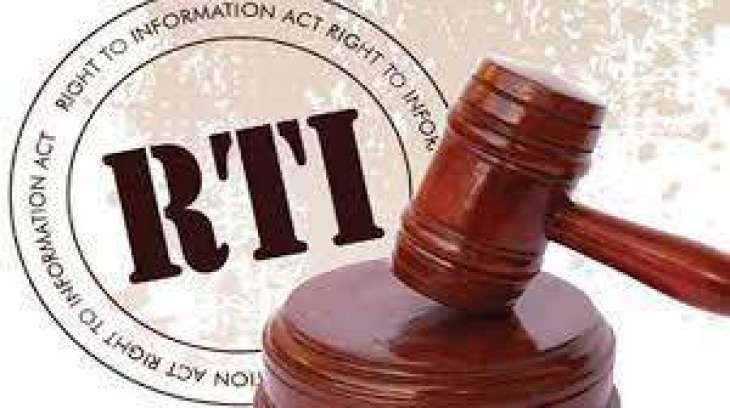“Rasai” meaning “Access” is a project designed to raise awareness about the law , step by step process of requesting information, in case of department’s failure to provide information how to reach out to Punjab Information commissioner to various stakeholders; Journalists, lawyers, PIOs, Academia and women from every walk of life; parliamentarian, working or stay at home.
By Marhaba Rana
Freedom to hold an opinion and expression are vital for a thriving democracy. This right is recognized by various international institutions including the United Nations Declaration of Human Rights (UDHR) and the International Covenant on Civil and Political Rights (ICCPR). Right to information (RTI) ensures empowerment of citizens, defends public interest, eradicates corruption and strengthens citizen’s trust on public bodies.
In Pakistan, right to freedom of expression and speech had been recognized by the Constitutions of 1956 and 1962. The Constitution of Pakistan, 1973 includes a specific provision (Article 19) on freedom of expression and speech. However, right to information was recognized as a constitutional right through Eighteenth Amendment in 2010.
Prior to this, freedom of information laws were in place in Baluchistan, Sindh and at Federal level. However, Khyber Pakhtunkhwa (KP) and Punjab Provinces enacted right to information laws in their respective jurisdictions in 2013 after the 18 Amendment. And it states that
“Every citizen shall have the right to have access to information in all matters of public importance subject to regulation and reasonable restrictions imposed by law.”
Citizen engagement in governing processes is instrumental to democracy. Information is crucial for the citizen-state dialogue so the information should be free and be readily & easily accessible for common man. Through the dialogue, citizens can voice their concerns and ratify their issues, which leads to trust on government apparatus and diminishing the culture of secrecy in bureaucratic setting. Pro-active disclosure and transparency are kingpins of democracy
Right to information is based on the principle that information belongs to the people and as citizen of Pakistan, we can access information from government and private bodies that receive public funding. Public Information Officer (PIO) or Public Relation Officer (PRO) are appointed in almost every government body. Any citizen can ask to access information and PIO/PRO are bound by this act to provide information within 14 working days. If they fail to do so, than the citizen can approach Punjab Information Commission (PIC).
Punjab Information Commission will bound the PIO/PRO of respective institute to provide the information within 60 working days. There have been cases where the commissioner have imposed a fine worth Rs. 50000/- on PIO for delaying the process.
Bureaucratic power resided in clinging to the secrecy and with-holding & hiding information from citizens. Corruption, trust issues on public bodies and poor governance are few key issues ascend due to non-disclosure. This no longer is the case, RTI has empowered citizens and democratic process by keeping a check on governance. Right to information is a giant leap towards making Punjab a democratic province, citizens can keep a track of government’s actions but can also make it accountable.
Everyday Pakistan faces political turmoil in the name of democracy. In order to bridge the gap between the general public and the government functionaries, it is critical that all key stakeholders endeavor, collectively or separately, to set a precedent of its kind by creating awareness among general public regarding RTI Act in an attempt to pay respect to the citizens’ constitutional right to information.
Thus, “Rasai” meaning “Access” is a project designed to raise awareness about the law , step by step process of requesting information, in case of department’s failure to provide information how to reach out to Punjab Information commissioner to various stakeholders; Journalists, lawyers, PIOs, Academia and women from every walk of life; parliamentarian, working or stay at home. Punjab Information Commission has recently started their toll free helpline to assist the public, all the relevant details can be easily accessed at their website as well.
In times when relishing ultimate superiority with defunct accountability, corruption and biasness has become one of the most prominent issues, RTI is in fact, the foundation stone under which democracy will nurture.
The writer is a sociologist and development expert, and is working at University of Home Economics, Lahore




